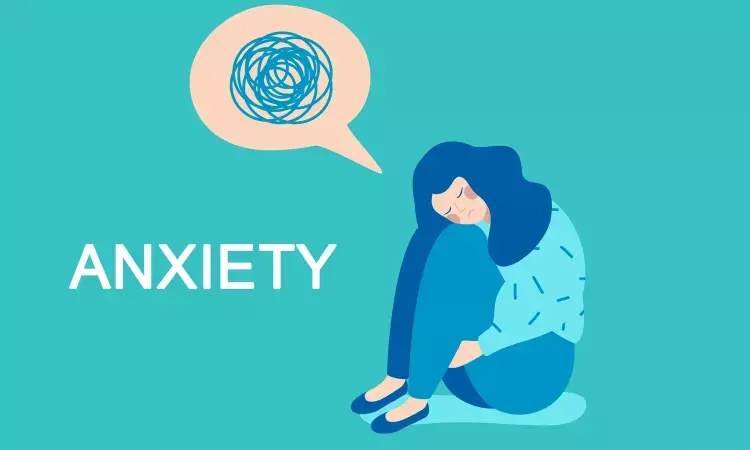- Home
- Medical news & Guidelines
- Anesthesiology
- Cardiology and CTVS
- Critical Care
- Dentistry
- Dermatology
- Diabetes and Endocrinology
- ENT
- Gastroenterology
- Medicine
- Nephrology
- Neurology
- Obstretics-Gynaecology
- Oncology
- Ophthalmology
- Orthopaedics
- Pediatrics-Neonatology
- Psychiatry
- Pulmonology
- Radiology
- Surgery
- Urology
- Laboratory Medicine
- Diet
- Nursing
- Paramedical
- Physiotherapy
- Health news
- Fact Check
- Bone Health Fact Check
- Brain Health Fact Check
- Cancer Related Fact Check
- Child Care Fact Check
- Dental and oral health fact check
- Diabetes and metabolic health fact check
- Diet and Nutrition Fact Check
- Eye and ENT Care Fact Check
- Fitness fact check
- Gut health fact check
- Heart health fact check
- Kidney health fact check
- Medical education fact check
- Men's health fact check
- Respiratory fact check
- Skin and hair care fact check
- Vaccine and Immunization fact check
- Women's health fact check
- AYUSH
- State News
- Andaman and Nicobar Islands
- Andhra Pradesh
- Arunachal Pradesh
- Assam
- Bihar
- Chandigarh
- Chattisgarh
- Dadra and Nagar Haveli
- Daman and Diu
- Delhi
- Goa
- Gujarat
- Haryana
- Himachal Pradesh
- Jammu & Kashmir
- Jharkhand
- Karnataka
- Kerala
- Ladakh
- Lakshadweep
- Madhya Pradesh
- Maharashtra
- Manipur
- Meghalaya
- Mizoram
- Nagaland
- Odisha
- Puducherry
- Punjab
- Rajasthan
- Sikkim
- Tamil Nadu
- Telangana
- Tripura
- Uttar Pradesh
- Uttrakhand
- West Bengal
- Medical Education
- Industry
WPSI recommends screening females aged 13 and over for Anxiety

The Women's Preventive Services Initiative (WPSI) has recommended screening for anxiety in women and adolescent girls 13 years or older, including pregnant and postpartum women. Screening involves completing a brief clinician- or self-administered questionnaire that describes symptoms of anxiety. Optimal screening intervals are unknown, and clinical judgment should be used to determine frequency. The guideline is published in the Annals of Internal Medicine.
Given the high prevalence of anxiety disorders, lack of recognition in clinical practice, and multiple problems associated with untreated anxiety, clinicians should consider screening women who have not been recently screened. The recommendation was adopted by the Health Resources and Services Administration and will be incorporated into the summary of covered benefits for preventive services without cost-sharing as required by the Patient Protection and Affordable Care Act. Both the guidelines and a systematic review of the evidence are published in Annals of Internal Medicine.
Lifetime prevalence of anxiety disorders in women is approximately 40 percent, twice that in men. Despite the high prevalence and burden of anxiety disorders and the availability of methods for screening, diagnosis, and treatment, only an estimated 20 percent of affected men and women seek care. The goal of clinical recommendations for screening is to increase detection and achieve earlier diagnosis of specific types of anxiety and co-occurring conditions; initiate appropriate treatment; and improve health, function, and well-being for women and girls.
To develop the recommendations, researchers reviewed studies that enrolled adolescent girls and adult women not currently diagnosed with anxiety disorders, including those who were pregnant or postpartum, and compared clinical outcomes and harms between women who were and were not screened; diagnostic accuracy studies of screening instruments; and systematic reviews of randomized trials of behavioral and pharmacologic treatments. No studies examined the overall effectiveness and harms of screening for anxiety. But the researchers found strong evidence that screening instruments for anxiety are moderately to highly accurate and that behavioral therapies and antianxiety medications effectively improve anxiety symptoms.
The authors of an accompanying editorial from Yale University School of Medicine suggest that these recommendations are a great start, but issues need to be addressed to ensure that these recommendations can be implemented in clinical practice. In addition, they suggest that it is worth considering why anxiety is so prevalent and what can be done from a public health perspective to prevent it.
For further reference log on to:
Dr Kamal Kant Kohli-MBBS, DTCD- a chest specialist with more than 30 years of practice and a flair for writing clinical articles, Dr Kamal Kant Kohli joined Medical Dialogues as a Chief Editor of Medical News. Besides writing articles, as an editor, he proofreads and verifies all the medical content published on Medical Dialogues including those coming from journals, studies,medical conferences,guidelines etc. Email: drkohli@medicaldialogues.in. Contact no. 011-43720751


